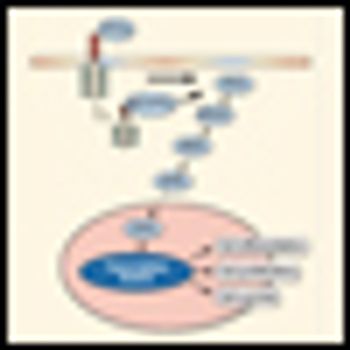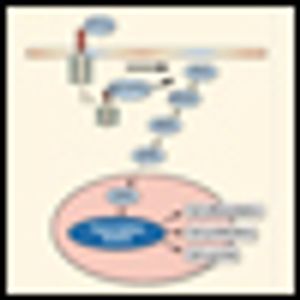Articles by Arlene A. Forastiere, MD

About 30,000 new cases of thyroid cancer are diagnosed annually in the United States.[1] The incidence among men has risen more dramatically than any other malignancy in recent years (2.4% annual increase).[2] Thyroid cancers arise from one of two cell types, namely follicular and parafollicular cells.

Based on positive results from the Radiation Therapy Oncology Group (RTOG) 85-01 trial, the conventional nonsurgical treatment of esophageal carcinoma is combined-modality therapy. Dose intensification of the RTOG 85-01 regimen, examined in the Intergroup (INT)-0123/RTOG 94-05 trial, did not improve local control or survival. Areas of clinical investigation include the development of combined-modality therapy regimens with newer systemic agents, the use of 18F-fluorodeoxyglucose positron-emission tomography to assist in the development of innovative radiation treatment planning techniques, and the identification of prognostic molecular markers. The addition of surgery following primary combined-modality therapy apparently does not improve survival, but this finding is controversial.

Argiris and colleagues presenta comprehensive review of25 years of phase II/III trialsusing multimodality therapy for locallyadvanced head and neck squamouscell cancer (HNSCC). Theyfocus on two approaches: inductionchemotherapy followed by definitivelocal therapy (surgery and/or radiotherapy)and concurrent chemoradiotherapy.In sorting through thesetrials, the authors review the controversiesin the management of locallyadvanced HNSCC, while also presentinga rationale for a unified approach-combining induction andconcomitant chemoradiotherapy in amultimodality treatment paradigm.Evidence from several recent studiessuggests that this strategy will benefita subset of patients with locally advanceddisease. The stage is set forthe reevaluation of the benefit of inductionchemotherapy prior to definitivechemoradiation. To that end, threedifferent prospective phase III trialsare under way in the United States.

Esophageal cancer, with an estimated number of 12,300 new cases in the year 2000, is relatively uncommon in the United States but produces a high number of annual deaths, estimated at 12,100. Moreover, the incidence of the

Drs. Ilson and Kelsen present an excellent review of the current investigations and treatment recommendations for patients with esophageal cancer. In a comprehensive and concise fashion, they detail controversies in surgical and nonsurgical management, neoadjuvant therapies, and regimens for treating metastatic disease. Their review provides an opportunity to further highlight several research questions.



